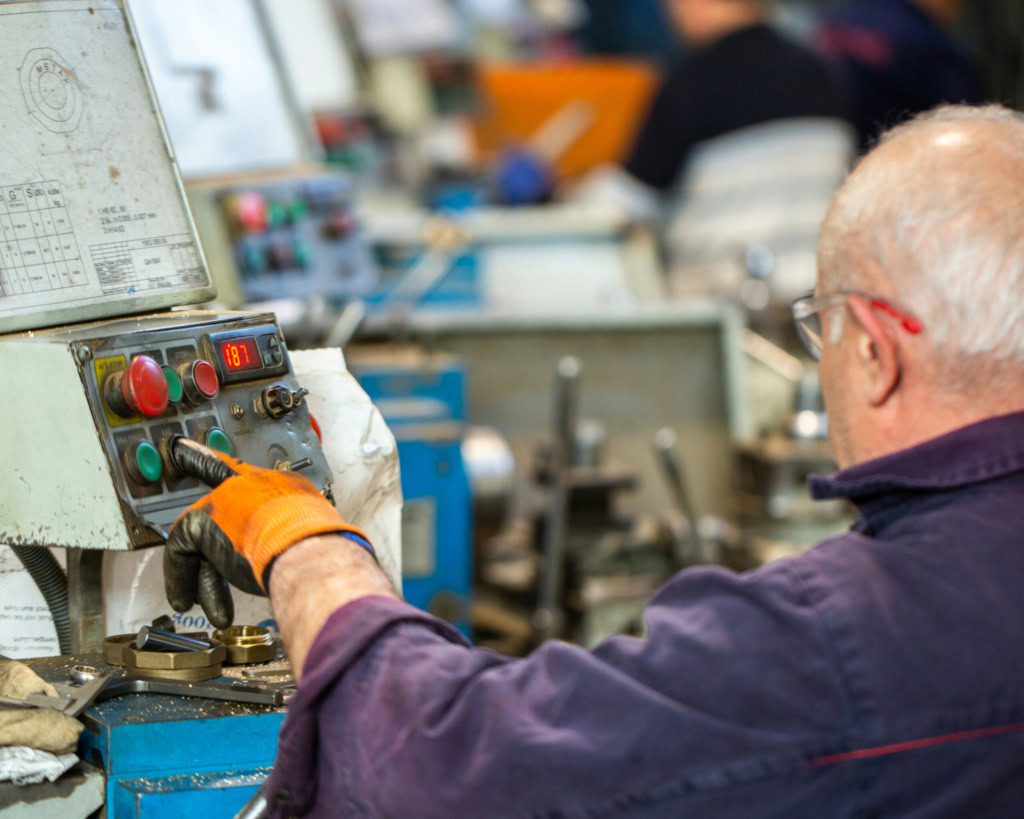Introduction
Operational excellence is the key to performance and customer satisfaction. In this respect, the Poka-Yoke concept is proving to be an essential tool in the quest for industrial quality, enabling companies to minimize errors and optimize their production processes. This methodology, intrinsically linked to continuous improvement, plays a crucial role in eliminating defects and preventing errors, which is vital in an increasingly demanding and competitive industrial context.
Section 1: Basics of Poka-Yoke
Definition and historical origins
Poka-Yoke, a Japanese term literally translated as "avoiding unintentional errors", was developed at the Toyota factory in Japan in the 1960s. Created by engineer Shigeo Shingo, this method aims to prevent defects in production and logistics processes, by making errors impossible or detecting and correcting them immediately.
Fundamental principles and objectives
Poka-Yoke is based on simple but powerful principles: the elimination of errors and the prevention of production defects. The aim is to guarantee impeccable product quality by intervening directly in processes, simplifying operators' tasks and limiting distractions, so that they can concentrate fully on their work.
The different types of Poka-Yoke devices
Poka Yoke devices can be classified into three main categories: physical, sequential and informative. Physical devices, such as jigs or coders, physically prevent errors. Sequential devices ensure that process steps are carried out in the correct order. Finally, informative devices, such as signaling or warning systems, provide operators with the information they need to avoid errors.
By integrating Poka Yoke into their processes, companies can significantly improve quality and efficiency. Mercateam, as a collaborative digital platform, is perfectly aligned with these principles, offering industries the tools they need to track skillsthe trainingand operator assignmentThis facilitates the implementation of error prevention methods. Thanks to its advanced functionalities, Mercateam enables operational processes to be digitized and optimized, effectively supporting the application of Poka-Yoke in modern industry.
Section 2: Benefits of Poka-Yoke in Industry
Adopting Poka-Yoke in industrial processes isn't just about improving quality; it encompasses a global transformation of operations that positively impacts the whole company. Here are the main benefits:
Improving quality and reducing scrap and rework
By preventing errors before they occur, Poka-Yoke ensures top-quality production right the first time. This approach virtually eliminates the need for scrap and rework, resulting in significant savings in materials, time and costs. As a result, companies can maintain a high level of quality without compromise, an essential factor in increasingly demanding markets.
Increased operational efficiency and reduced downtime
Poka-Yoke simplifies processes by eliminating superfluous steps and reducing the complexity of tasks for operators. This simplification translates into a significant increase in operational efficiency. What's more, by preventing errors, Poka-Yoke reduces downtime associated with corrections and adjustments, enabling more efficient use of resources and equipment.
Impact on customer satisfaction and corporate image
Consistent, reliable product quality strengthens customer confidence in the brand, contributing to their satisfaction and loyalty. What's more, the efficiency and reliability of our production reflect positively on the company's brand image, positioning it as a leader in quality and innovation in its sector.
Section 3: Implementing Poka-Yoke
Effectively integrating Poka-Yoke into production processes requires a methodical, well-thought-out approach. Here are the key steps:
Key steps for integrating Poka-Yoke into production processes
Implementation begins with management's commitment to quality and continuous improvement. It is crucial to train and sensitize teams to the importance of preventing errors. Next, a detailed assessment of current processes helps identify where and how Poka-Yoke can be effectively applied.
Process analysis and identification of error-prone critical points
Careful process analysis is essential to determine where errors are most likely to occur. This often involves direct observation of operations, review of historical quality data and consultation with operators for their experience and feedback.
Choice and design of Poka-Yoke devices adapted to specific company needs
Based on the analysis, Poka-Yoke devices are selected or designed to meet the specific needs of each process. This may include equipment modifications, the introduction of templates or guides, or the implementation of warning systems. The aim is to make errors impossible or to detect them immediately for corrective action.
Implementing Poka-Yoke requires a long-term commitment to continuous improvement, and a willingness to constantly question and improve production processes. With the support of advanced technologies, such as those offered by Mercateam, companies can take a significant step towards operational excellence, ensuring that their processes are not only efficient but also resilient in the face of errors.
Section 4: Practical examples and use cases
The application of Poka-Yoke transcends sectors, offering pragmatic and effective solutions for eliminating errors in a variety of industrial environments. These concrete examples highlight the significant impact of Poka-Yoke on improving quality and efficiency.
In the automotive industry
- Toyota uses Poka-Yoke systems to prevent incorrect installation of components. A notable example is the integration of coded pins that prevent the assembly of non-compatible parts, thus reducing errors and defects.
- Ford has incorporated Poka-Yoke right from the design phase of its vehicles. For example, some parts are designed to have only one possible assembly orientation, eliminating errors and simplifying the production process.
In the Electronics Industry
- Electronics manufacturers have adopted Poka-Yoke systems to ensure accurate placement of components on printed circuit boards, using templates and sensors to prevent incorrect assembly.
In the Pharmaceuticals Sector
- Visit pharmaceutical companies use the Poka-Yoke to ensure that the correct drug dosages are used in production. Precise measuring devices and warning systems prevent potentially dangerous errors.
In Consumer Products Manufacturing
- Appliance manufacturers are integrating safety features based on the Poka-Yoke, such as systems that prevent a microwave from operating when the door is open, guaranteeing user safety.
Section 5: Challenges and considerations for successful implementation
Common challenges
- Resistance to change : Implementing Poka-Yoke can be hampered by resistance from employees accustomed to old ways of working. Training and communication are key to overcoming this barrier.
- Process complexity : In environments where processes are particularly complex, identifying and implementing the right Poka-Yoke solutions can be a challenge.
Importance of corporate culture
- The successful implementation of Poka-Yoke depends largely on the corporate culture. An environment that values continuous improvement and employee commitment encourages the adoption of this methodology.
Maintenance considerations
- Regular maintenance of Poka-Yoke devices is essential to ensure their long-term efficiency. It is important to evaluate and adjust these devices as production processes evolve.
Conclusion
Poka-Yoke has proved to be an invaluable tool in the arsenal of continuous improvement, delivering significant improvements in quality, efficiency and customer satisfaction across a wide range of industries. By preventing errors before they occur, companies can not only reduce the costs associated with defects and scrap, but also boost their brand image and competitiveness in the marketplace.
Adopting Poka-Yoke requires a commitment to continuous improvement and quality at all levels of the organization. By integrating Poka-Yoke into their operational strategies, modern companies can ensure high-quality production, meeting the increasingly stringent demands of customers and regulators alike. It's an approach which, while presenting certain challenges, promises substantial returns in terms of efficiency and long-term performance. Encouraging the adoption of Poka-Yoke is a commitment to operational excellence and sustainable success.




